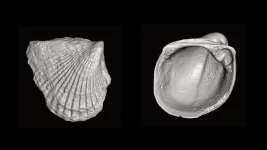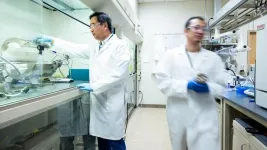(Press-News.org) The British Junior Cardiologists’ Association (BJCA) and the British Cardiovascular Society (BCS) have issued a joint position statement in a bid to stamp out bullying, harassment, discrimination and other “unacceptable” and “unprofessional” behaviours in the specialty.
The statement, published online in the journal Heart, urges every cardiology team member to call out these behaviours to drive culture change.
Endorsed by 19 organisations affiliated with the BCS, the statement represents a specialty-wide response to the issue.
It comes in the wake of evidence suggesting that these behaviours are common in UK cardiology departments, and may be indicative of longstanding cultural and practice issues, fuelled by previous training and unconscious biases, says the statement.
Data from the General Medical Council trainee survey suggest that bullying in cardiology is almost double the average across all medical specialties: 12.3% vs 6.9%, highlights the statement.
Bullying is associated with poorer performance, a heightened risk of medical error, lost productivity, burn-out and absenteeism. It accounts for half of all stress-related workplace illness, the statement points out.
Inappropriate behaviour in cardiology departments has a detrimental ripple effect, including on the recruitment and retention of staff, patient care, and other bystanders, says the statement.
“As such, improving the culture and professional behaviours within UK cardiology departments is of paramount importance,” it insists.
The statement sets out examples of inappropriate behaviour. These include bullying; sexist, racist, homophobic or belittling language; discrimination; harassment; providing or depriving individuals of opportunities based purely on personal characteristics; outbursts of uncontrolled anger; and unconstructive criticism of performance.
And it highlights the common misconception in the specialty that intimidation helps to ‘build character’ and is how cardiologists were trained in the past.
“This is an anachronistic and flawed concept: intimidating language or actions do not build character and have substantial negative impacts on those affected. Furthermore, role modelling and learnt behaviours lead to perpetuating the cycle of bullying,” it emphasises.
“While mistakes happen in medicine and may require frank feedback to aid learning, they are not an excuse for intimidating or belittling behaviour or language,” it adds.
Senior team members should lead by example, and act swiftly to respond to concerns. But every member of the cardiology team has a duty to call out inappropriate behaviours to drive culture change and foster a positive working environment, says the statement.
Informal feedback for one-off episodes may be appropriate, but serious events or repeat offences warrant escalation through formal channels, it says.
Ignoring such behaviour simply helps to perpetuate it, emphasises the statement, adding that safeguards are needed to protect those who raise concerns from being penalised.
Several strategies are required at the individual, departmental, and national level to improve the culture within UK cardiology, concludes the statement. These are:
For departments and individuals
Set out clear standards and expectations of behavioural norms from all members of the cardiovascular team
Encourage the reporting of inappropriate behaviours
Ensure clear policies, practices and procedures are in place for dealing with inappropriate behaviour, iteratively reviewed, and included in induction and staff handbooks
Designate and train a behaviour lead with whom concerns can be raised
Consider any episodes of inappropriate behaviour in the selection process for promotions and leadership roles
Make routine use of multi-source feedback where evidence of all behaviours can be raised
Provide mandatory training for all on workplace culture; how to give and receive structured feedback; unconscious bias; and cardiology-specific human factors
For universities and national bodies
Develop a positive organisational culture and ensure that similar standards of behaviour are expected of members (national bodies)
Establish a transparent cardiology reporting strategy for inappropriate behaviour
Incorporate Freedom to Speak Up Guardians into the reporting and responding strategies in NHS Trusts
Include a person tasked with promoting professional standards on committees (national bodies)
Consider incidences of inappropriate behaviour when allocating funding and advancement in cardiovascular research (universities and funders)
Include past inappropriate behaviour when considering people for roles within their organisation, at meetings, or the presentation of awards (national bodies)
Ensure that appropriate mentors and advisors outside of the direct supervisory chain are available to everyone taking part in cardiovascular research (universities)
Develop appropriate training packages to improve accessibility to departments and individuals that are reasonably priced and included in study budgets (national bodies)
“As with clinical standards, professional societies have a role in developing a standard for appropriate behaviour and a responsibility to ensure that inappropriate behaviour is shown to be unacceptable,” says the statement.
*BCS President Professor John Greenwood comments: “No-one should be discriminated against at work, bullied, harassed or undermined. In cardiology we have had this pervasive culture for far too long. This statement and its practical recommendations represent a concerted effort to stop bullying in its tracks and put measures in place to stop it happening in the future. We will be taking the statement to our annual conference at the beginning of June to raise awareness and discuss implementation of the recommendations across the UK.”
*Dr Christian Fielder Camm, BJCA President, adds: "The detrimental effect of inappropriate workplace behaviour can be profound and all those involved in UK cardiology and cardiovascular medicine have a responsibility to face up to this longstanding problem.
“This document is a significant step forward in acknowledging this important issue and providing clear recommendations for individuals, departments, and national bodies to tackle this problem."
END
UK cardiology societies issue joint policy statement to stamp out bullying, harassment, and discrimination in the specialty
Every cardiology team member must call out these behaviors to drive culture change
2023-05-31
ELSE PRESS RELEASES FROM THIS DATE:
Predominance of young Asian men among large UK case series of laughing gas users
2023-05-31
The largest clinical case series to date of recreational users of nitrous oxide, popularly known as laughing gas, has found a predominance of young men of Asian ethnicity among those with neurological side effects who were seen at hospitals in 3 major cities in England.
This may indicate genetic susceptibility to the nerve damage caused by exposure to the gas, or other, as yet unidentified, social factors, suggest the researchers by way of an explanation for the finding, published online in the Journal of Neurology, Neurosurgery & Psychiatry.
Nitrous oxide is widely used as an anaesthetic in people and animals, ...
Ketamine nasal spray may prove safe and effective treatment for refractory migraine
2023-05-31
Ketamine taken in the form of a nasal spray may prove a safe and effective treatment for refractory chronic migraine, suggests a single centre study, published in the open access journal Regional Anesthesia & Pain Medicine.
It’s a more convenient alternative to intravenous infusion—the usual method of administration for these patients—but the potential for overuse means that it should be reserved for those in whom other treatment approaches have failed, caution the researchers.
Several clinical trials have shown ...
The clams that fell behind, and what they can tell us about evolution and extinction
2023-05-31
Every so often, life on Earth steps onto a nearly empty playing field and faces a spectacular opportunity. Something major changes—in the atmosphere or in the oceans, or in the organisms themselves —and the existing species begin to branch out into a brand-new world. Scientists are fascinated by this process, because it’s a unique look into evolution at pivotal moments in the history of life.
A new study led by scientists with the University of Chicago examined how bivalves—the group that includes clams, mussels, scallops, and oysters—evolved among many others in the period of rapid evolution known as the Cambrian Explosion. The team found ...
Medical school does not equip new doctors for the real working world, junior doctor warns
2023-05-31
Clinician burnout and overwork are known to adversely affect patient safety and junior doctors may be particularly vulnerable, research suggests.
The UK is facing a crisis in recruitment and retention in medicine, with a recent survey by the British Medical Association reporting that 4 in 10 junior doctors will quit their roles as soon as they find another job.
Considering the immense pressure doctors are under, with their decisions having the potential to shape the course of patients’ illnesses and even their lives, is a balanced and happy life as a doctor still possible?
In a new book released today titled The Bleep Test, junior doctor Luke Austen has combined ...
Unique “bawdy bard” act discovered, revealing 15th-century roots of British comedy
2023-05-31
University of Cambridge media release
UNDER STRICT EMBARGO UNTIL 00:01AM (UK TIME) ON WEDNESDAY 31ST MAY 2023
An unprecedented record of medieval live comedy performance has been identified in a 15th-century manuscript. Raucous texts – mocking kings, priests and peasants; encouraging audiences to get drunk; and shocking them with slapstick – shed new light on Britain’s famous sense of humour and the role played by minstrels in medieval society.
The texts contain the earliest recorded use of ‘red herring’ in English, extremely rare forms of medieval literature, as well as a ...
Saved from extinction, Southern California’s Channel Island Foxes now face new threat to survival
2023-05-31
Tiny foxes — each no bigger than a five-pound housecat — inhabiting the Channel Islands off the coast of Southern California were saved from extinction in 2016. However, new research reveals that the foxes now face a different threat to their survival.
Suzanne Edmands, professor of biological sciences at USC Dornsife College of Letters, Arts and Sciences, and Nicole Adams, who earned her PhD from USC Dornsife in 2019, found that the foxes’ genetic diversity has decreased over time, possibly jeopardizing their survival ...
Genetic change increased bird flu severity during U.S. spread
2023-05-31
(MEMPHIS, Tenn. – May 29, 2023) St. Jude Children’s Research Hospital scientists discovered how the current epizootic H5N1 avian influenza virus (bird flu) gained new genes and greater virulence as it spread west. Researchers showed that the avian virus could severely infect the brains of mammalian research models, a notable departure from previous related strains of the virus. The researchers genetically traced the virus’ expansion across the continent and its establishment in wild waterfowl populations to understand what makes it so different. The study was recently published in Nature Communications.
“We ...
New Jersey Health Foundation awards grants to Kessler Foundation to advance research in brain and spinal cord stimulation methods
2023-05-30
East Hanover, NJ – May 30, 2023 – Annually, New Jersey Health Foundation (NJHF) invites researchers to submit applications for grants aimed at supporting pilot research projects that exhibit promising potential. These grants serve as opportunities for scientists to utilize their initial findings to secure further funding and progress their research. This year, NJHF granted awards to two Kessler Foundation scientists to conduct studies that expand research in upper extremity exercise after stroke ...
Extracting a clean fuel from water
2023-05-30
A plentiful supply of clean energy is lurking in plain sight. It is the hydrogen we can extract from water (H2O) using renewable energy. Scientists are seeking low-cost methods for producing clean hydrogen from water to replace fossil fuels, as part of the quest to combat climate change.
Hydrogen can power vehicles while emitting nothing but water. Hydrogen is also an important chemical for many industrial processes, most notably in steel making and ammonia production. Using cleaner hydrogen is highly desirable in those industries.
“By using ...
NJIT researchers awarded $4.6m to unlock mysteries of solar eruptions
2023-05-30
A New Jersey Institute of Technology research team led by physics professor Wenda Cao at the university’s Center for Solar Terrestrial Research (CSTR) has been awarded a $4.64 million National Science Foundation grant to continue leading explorations of the Sun’s explosive activity at Big Bear Solar Observatory (BBSO).
The grant marks the largest project that the Solar-Terrestrial Research Program under NSF’s Division of Atmospheric and Geospace Sciences (AGS) supports, extending five more years of baseline funding for all science, instrumentation and education activities at BBSO, located at California’s Big Bear Lake.
The ...
LAST 30 PRESS RELEASES:
Evidence behind intermittent fasting for weight loss fails to match hype
How AI tools like DeepSeek are transforming emotional and mental health care of Chinese youth
Study finds link between sugary drinks and anxiety in young people
Scientists show how to predict world’s deadly scorpion hotspots
ASU researchers to lead AAAS panel on water insecurity in the United States
ASU professor Anne Stone to present at AAAS Conference in Phoenix on ancient origins of modern disease
Proposals for exploring viruses and skin as the next experimental quantum frontiers share US$30,000 science award
ASU researchers showcase scalable tech solutions for older adults living alone with cognitive decline at AAAS 2026
Scientists identify smooth regional trends in fruit fly survival strategies
Antipathy toward snakes? Your parents likely talked you into that at an early age
Sylvester Cancer Tip Sheet for Feb. 2026
Online exposure to medical misinformation concentrated among older adults
Telehealth improves access to genetic services for adult survivors of childhood cancers
Outdated mortality benchmarks risk missing early signs of famine and delay recognizing mass starvation
Newly discovered bacterium converts carbon dioxide into chemicals using electricity
Flipping and reversing mini-proteins could improve disease treatment
Scientists reveal major hidden source of atmospheric nitrogen pollution in fragile lake basin
Biochar emerges as a powerful tool for soil carbon neutrality and climate mitigation
Tiny cell messengers show big promise for safer protein and gene delivery
AMS releases statement regarding the decision to rescind EPA’s 2009 Endangerment Finding
Parents’ alcohol and drug use influences their children’s consumption, research shows
Modular assembly of chiral nitrogen-bridged rings achieved by palladium-catalyzed diastereoselective and enantioselective cascade cyclization reactions
Promoting civic engagement
AMS Science Preview: Hurricane slowdown, school snow days
Deforestation in the Amazon raises the surface temperature by 3 °C during the dry season
Model more accurately maps the impact of frost on corn crops
How did humans develop sharp vision? Lab-grown retinas show likely answer
Sour grapes? Taste, experience of sour foods depends on individual consumer
At AAAS, professor Krystal Tsosie argues the future of science must be Indigenous-led
From the lab to the living room: Decoding Parkinson’s patients movements in the real world
[Press-News.org] UK cardiology societies issue joint policy statement to stamp out bullying, harassment, and discrimination in the specialtyEvery cardiology team member must call out these behaviors to drive culture change





